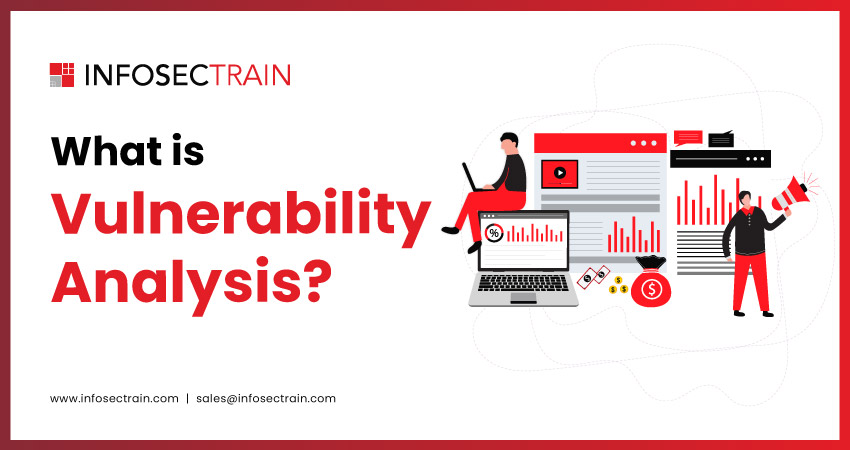What is Vulnerability Analysis?
In an era where digital adoption is not just a trend but a necessity, the cybersecurity landscape has become increasingly complex and severe. As we increasingly depend on technology, malicious actors are seeking more ways to exploit vulnerabilities in computer systems, networks, and softwares. This puts organizations, governments, and individuals at constant risk of cyber-attacks that can lead to data breaches, financial losses, and reputational damage. One critical aspect of fortifying our digital defenses is to conduct vulnerability analysis, which identifies weaknesses and potential entry points in an organization’s information systems, networks, applications, and infrastructure.

Table of Contents
Introduction to Vulnerability Analysis
Importance of Vulnerability Analysis
Types of Vulnerability Analysis
Introduction to Vulnerability Analysis
Vulnerability analysis, or vulnerability assessment, is a crucial aspect of cyber security. It is a systematic and proactive approach used to detect and resolve vulnerabilities, flaws, or gaps that malicious individuals could exploit to compromise information assets’ confidentiality, integrity, or availability. It involves a comprehensive assessment of software, hardware, and network components to pinpoint potential entry points and security vulnerabilities and gaps that attackers could exploit.
Importance of Vulnerability Analysis
Vulnerability analysis helps organizations proactively identify and address weaknesses in their systems and networks. This approach enables organizations to implement timely and effective security measures to protect sensitive data or information, evade unauthorized access, and defend against potential cyber threats. Regular vulnerability analysis helps maintain an overall security posture, mitigating the risk of data breaches, service disruptions, and financial losses and ensuring continued operations. This practice helps organizations to stay ahead of emerging cyber threats, strengthen their defenses, and maintain customer and stakeholder trust in an increasingly interconnected digital landscape.
Types of Vulnerability Analysis
Vulnerability analysis in cybersecurity includes various assessments that focus on different aspects of an organization’s digital environment. Below are the main types of vulnerability analysis:
- Network Vulnerability Analysis: This analysis involves scanning and probing a network’s infrastructure to detect vulnerable devices, open ports, misconfigurations, and security loopholes that could be exploited.
- Web Application Vulnerability Analysis: This analysis assesses the security of web applications by scanning for known vulnerabilities such as SQL injection, XSS, CSRF, and others that could lead to unauthorized access or data breaches.
- Mobile Application Vulnerability Analysis: This analysis identifies vulnerabilities specific to mobile applications, including insufficient encryption, insecure communication protocols, and insecure data storage.
- Database Vulnerability Analysis: This analysis assesses the security of databases, including encryption, access controls, and the prevention of SQL injection attacks.
- Wireless Network Vulnerability Analysis: This analysis assesses the security of wireless networks, including Wi-Fi, Bluetooth, and other wireless communication protocols. It identifies potential weaknesses in encryption protocols and wireless device configurations.
- Cloud Infrastructure Vulnerability Analysis: This analysis examines the configurations and settings of cloud services to detect vulnerabilities or misconfigurations that can potentially lead to the exposure of sensitive data.
- Physical Security Vulnerability Analysis: This analysis assesses an organization’s physical access controls, surveillance systems, and other security measures to detect potential weaknesses that could compromise the physical security of facilities.
- Internet of Things (IoT) Vulnerability Analysis: This analysis assesses IoT devices’ security and network connections, identifying vulnerabilities that may lead to data breaches or unauthorized control.
How can InfosecTrain Help?
Join InfosecTrain‘s Certified Ethical Hacker (CEH) certification training course to gain in-depth knowledge about vulnerability assessment, its various categories, and effective strategies. Our course includes hands-on experience with industry-leading technologies, providing practical insights into the tools and techniques used in real-world scenarios. With the guidance of skilled and experienced instructors, you will bolster your understanding of ethical hacking, develop skills to identify and address vulnerabilities, and learn how to secure digital assets proactively. Enroll now to take your cybersecurity skills to the next level!
TRAINING CALENDAR of Upcoming Batches For CEH v13
| Start Date | End Date | Start - End Time | Batch Type | Training Mode | Batch Status | |
|---|---|---|---|---|---|---|
| 26-Jul-2025 | 31-Aug-2025 | 19:00 - 23:00 IST | Weekend | Online | [ Close ] | |
| 16-Aug-2025 | 28-Sep-2025 | 19:00 - 23:00 IST | Weekend | Online | [ Open ] |







 1800-843-7890 (India)
1800-843-7890 (India)